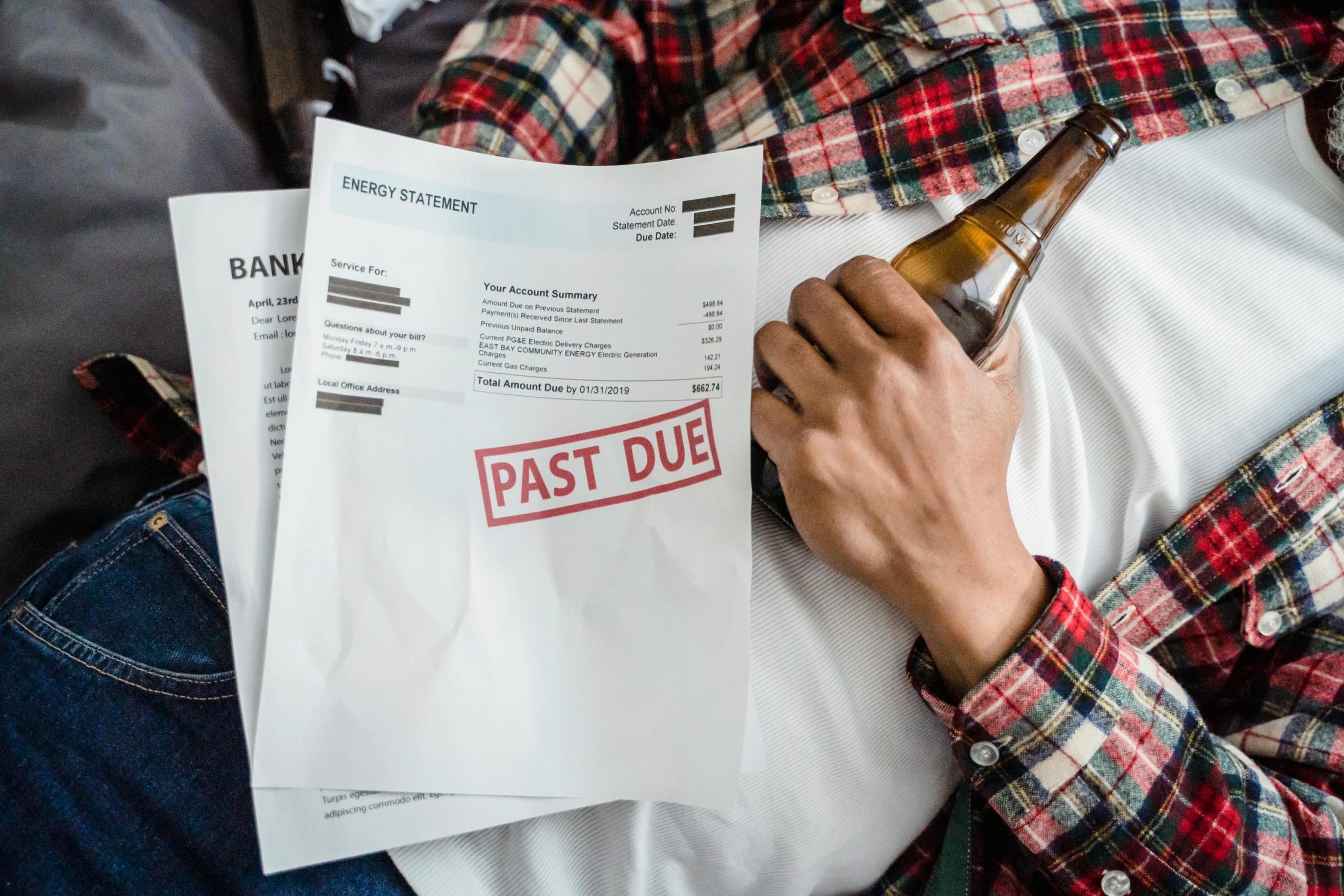What Happens to Debt When You Die: A Guide for Families


Dealing with debt is stressful enough, but what happens to it when you die? Many people wonder if their loved ones will be responsible for unpaid credit cards, loans, or medical bills. The good news is, in most cases, your debt does not pass on to your family. However, it can still affect your estate and the inheritance you leave behind. This article breaks it down in a simple, clear way.
What Is Debt After Death?
When someone dies, their debt doesn’t just disappear. Instead, it becomes part of their estate—the total value of everything they owned, like money, property, and personal belongings. Before any money or assets are passed down to heirs, the estate is first used to pay off the person’s outstanding debts.
This is handled through a legal process called probate, where the court oversees how the estate is distributed. An executor (often named in the will) is in charge of managing the estate, paying off debts, and distributing what’s left to the beneficiaries.
Even if the person had a lot of debt, creditors can only collect what the estate can pay. If there isn’t enough money, the remaining debt usually goes unpaid. Most family members won’t have to pay out of their own pocket, unless they co-signed the debt or shared the account.
Common types of debt that may need to be paid include:
- Credit card balances
- Mortgages
- Car loans
- Student loans
- Medical bills
- Personal loans
- Taxes owed
Understanding how this process works can help families prepare and protect their financial future.
Who Is Responsible for the Debt?
When someone passes away, the responsibility for paying off their debt usually falls on their estate, not their family. The estate includes all the money, property, and belongings the person left behind. During the probate process, any outstanding debts are paid before heirs receive their inheritance. If the estate doesn’t have enough value to cover everything owed, it’s considered insolvent, and in many cases, some debts simply won’t be paid.
Family members typically aren’t personally responsible for the deceased’s debt. However, there are a few exceptions where they might be legally required to pay:
- They co-signed on a loan with the deceased
- They had a joint credit account
- They live in a community property state, like California or Texas, where both spouses may be responsible for shared debts
- They mismanaged the estate, such as taking money or assets before debts were settled
If none of these situations apply, surviving relatives usually won’t have to pay the debt from their own funds. Knowing your rights can help avoid unnecessary stress and confusion during a difficult time.
What Happens to Different Types of Debt?
Different types of debt are handled in different ways after someone dies. Some debts are forgiven, while others can pass on to the estate or even to another person under certain conditions. Here’s a closer look at how each type is treated:
Credit Card Debt
Credit card debt is unsecured, meaning there’s no property backing it. After death, the estate is used to pay off the balance. If there’s not enough money in the estate, the remaining debt is usually forgiven. However, any joint account holders—not authorized users—may still be responsible for the remaining balance.
Mortgage
A mortgage is a secured debt, backed by the house itself. If someone wants to keep the home, they must continue the monthly payments or refinance it in their name. If no one takes over the mortgage, the lender may foreclose and sell the home to recover the debt.
Car Loans
Like mortgages, car loans are secured. If the borrower dies and the loan isn’t paid, the lender can repossess the vehicle. Family members who wish to keep the car must either take over the loan or pay it off.
Student Loans
- Federal student loans are typically discharged (forgiven) when the borrower dies. The loan servicer must receive a death certificate to clear the debt.
- Private student loans vary. Some lenders offer death forgiveness, while others may try to collect from the estate. If someone co-signed the loan, they will likely be responsible for repaying it.
Medical Bills
Medical debt is treated like other unsecured debt. The estate pays what it can. If there are no assets left and no one else is legally tied to the bill, the debt may be written off. This can be a big issue in states with high medical costs.
Personal Loans
These work much like credit card debt. Personal loans are unsecured, so they are paid out of the estate if funds are available. If not, and there’s no co-signer, the debt is typically forgiven.
What Happens to Debt If There Is No Estate?
If a person dies with little to no money, property, or valuable assets, their estate is considered insolvent. This means the estate doesn’t have enough value to cover all the debts owed.
In this case:
- Creditors may not be paid in full. The estate’s executor will follow the law to prioritize which debts get paid first, such as funeral costs, taxes, and secured loans. Anything left unpaid after that may be forgiven or written off.
- Family members are generally not responsible. Unless they are a co-signer, joint account holder, or live in a community property state, they are not required to pay the debt out of pocket.
- Some small debts might go uncollected. If the debt is small and there are no estate assets, the creditor might choose not to pursue it.
Even if there is no estate, it’s important for surviving family members to handle communications carefully and avoid taking on responsibility for debts they’re not legally obligated to pay.
What Happens to Joint Accounts or Co-Signed Loans?
Joint Account Holders
If you shared a credit card or bank account with someone who passed away, you are now fully responsible for that account. This applies whether it’s a joint credit card or a joint checking/savings account.
- For credit cards, any unpaid balance becomes your responsibility, even if you didn’t make all the charges.
- For bank accounts, you become the sole owner of the funds and can continue using the account.
Joint accounts don’t go through probate since they automatically transfer to the surviving account holder.
Co-Signers
If you co-signed a loan—like for a car, student loan, or personal loan—you legally promised to repay the loan if the other person couldn’t. That includes if they pass away.
- You’ll need to continue making payments as agreed.
- Lenders may contact you to restructure or refinance the loan.
Being a co-signer is a big responsibility, and it doesn’t end with the other person’s death.
Community Property States: A Special Case
In community property states, most debts acquired during the marriage belong to both spouses—even if only one person signed the paperwork. If your spouse dies, you may still be responsible for their debts.
States with community property laws include:
- Arizona
- California
- Idaho
- Louisiana
- Nevada
- New Mexico
- Texas
- Washington
- Wisconsin
In these states, it’s wise to speak with a financial advisor or estate attorney.
Can Creditors Take Your Life Insurance or Retirement Accounts?
Usually, no. Life insurance and retirement accounts with named beneficiaries do not go through probate and are not part of the estate.
This means:
- Creditors cannot claim life insurance benefits paid directly to a beneficiary.
- 401(k)s and IRAs with named beneficiaries are protected from creditors in most cases.
However, if these accounts name the estate as the beneficiary, they can be used to pay off debts.
What About Medical or Nursing Home Bills?
Hospitals and nursing homes may try to recover money owed by contacting family members, but unless you’re legally responsible (like a co-signer or spouse in a community property state), you aren’t required to pay.
Still, these bills can take a big bite out of an estate. To avoid surprises:
- Ask about debts early in the process.
- Don’t give away estate assets until debts are settled.
How to Protect Loved Ones from Debt After Death
There are smart steps you can take now to reduce the burden on your family:
1. Create a Will
Having a will makes it easier to manage your estate and ensures your wishes are clear. It also helps avoid probate delays.
2. Designate Beneficiaries
Set clear beneficiaries on:
- Life insurance policies
- Retirement accounts
- Payable-on-death (POD) bank accounts
This keeps these assets out of probate.
3. Consider a Trust
A living trust can help manage assets privately and keep more of your estate out of reach of creditors.
4. Keep Good Records
Make a list of all your debts, assets, and account info. Store it in a safe place and let someone you trust know where it is.
5. Buy Life Insurance
A life insurance policy can provide funds to cover debts, funeral costs, or ongoing support for your family.
What If a Debt Collector Contacts You After a Loved One Dies?
Debt collectors can contact family members to locate the person in charge of the estate (the executor). However, they can’t harass you or mislead you into thinking you must pay.
If you’re contacted:
- Ask for everything in writing.
- Tell them you’re not responsible unless you’re the executor or co-signer.
- File a complaint if they violate your rights.
You can also send a letter requesting that they stop contacting you.
Final Thoughts
So, what happens to debt when you die? In most cases, your estate pays the debt, not your family. The only exceptions involve co-signed loans, joint accounts, or community property laws. The best way to protect your loved ones is to plan ahead, keep detailed records, and make thoughtful financial choices now.
If you’re already thinking about your financial future, consider speaking with an estate planner or financial advisor. Peace of mind isn’t just about reducing debt—it’s about knowing your affairs are in order and your family is protected.




